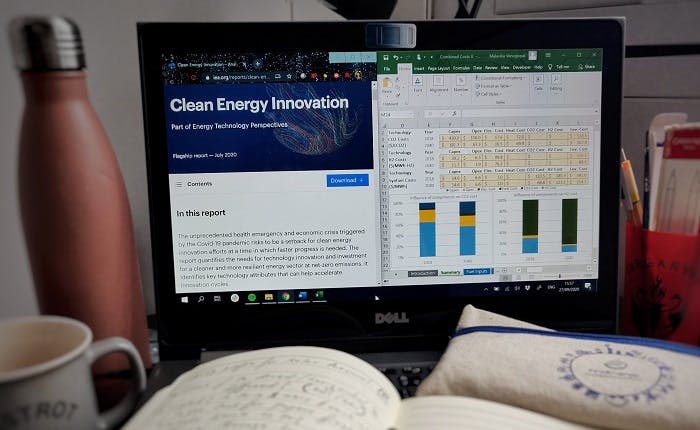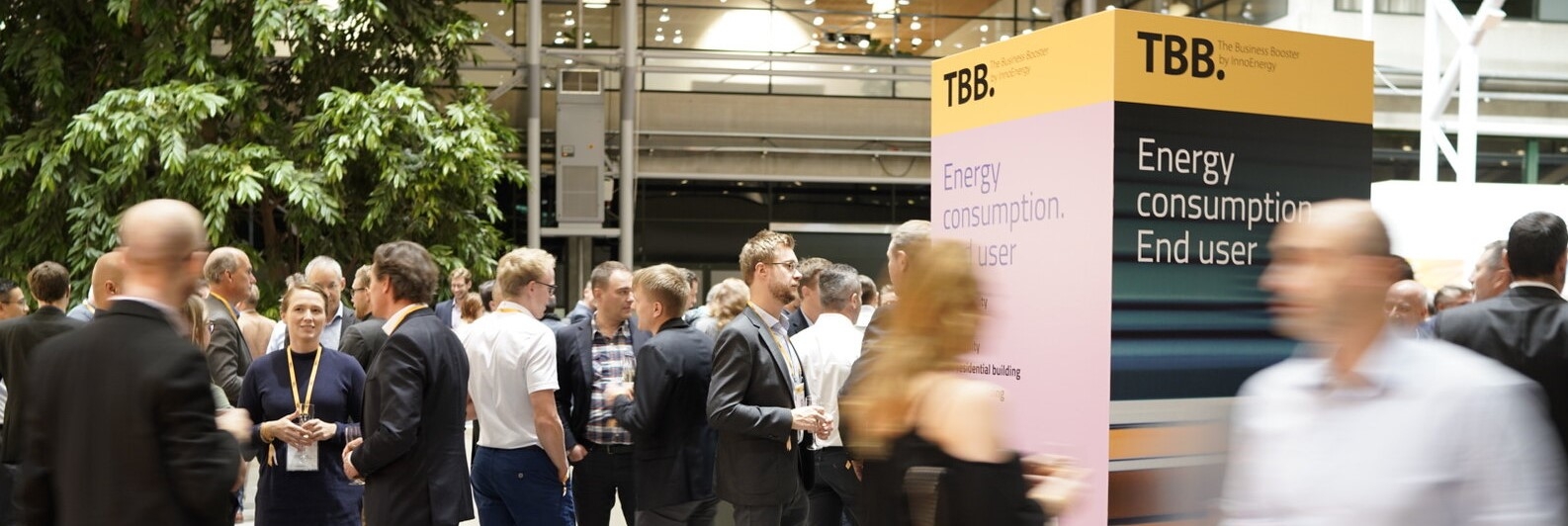InnoBlog: playing a role in the International Energy Agency’s Clean Energy Innovation report

The International Energy Agency (IEA) released a report titled ‘Clean Energy Innovation’ in July of this year. The report was written and delivered by the Energy Technology Perspectives team, a team that I am currently working with, as a Master’s intern. Last week, Bill Gates reshared this report, marking a momentous occasion, considering the millions of people who follow Bill Gates! All eyes were on the report, providing key evidences, quantifications and technologies required for a resilient energy sector. The report highlights why innovation is important in the energy sector, and how companies and governments can achieve net-zero emissions in the next decade. EIT InnoEnergy’s core motto is to enable all its students, to be at the forefront of energy innovation. In this InnoBlog, I provide a brief summary of the IEA report and why EIT InnoEnergy students are important in the context of the report.
Summary of the report
Over the last decade or two, we have been witnessing several pledges, agreements and coalitions to reach net zero-greenhouse gas emissions. However, there is a major difference between the pledges and the current state of the energy industry. While existing technology can greatly reduce the emissions from the energy industry, newer technologies are required to ensure this decarbonisation does not come at the cost of energy security. Energy in the report context not only includes powerplants for electricity generation, but also the heating and transportation fuel necessary in other industries such as shipping and heavy industries. Innovation is the key to fostering new technologies and advancing existing ones.
In today’s context, the technology required for reducing CO2 emissions by 35% are in prototype-phase, while an additional 40% reduction can come from technologies that are beyond prototyping phase, but not yet commercially deployed at mass-market stage. The report explores a scenario where early-stage technologies of today, provide for one third of the emission reduction by 2050. This ‘Faster Innovation Scenario’ necessitates both industry and government action, to ensure net-zero emissions is achieved by 2050. Hence it is of utmost importance to accelerate the pace of development of these early-stage technologies.
To tackle this, the IEA suggests mobilising public and private funds, to increase investments in implementation, value chain and deployment of early-stage technologies. Such mobilisation can help bridge the lab-to-industry gap, while sharing the investment risks among multiple parties. By focussing on value chain, public led R&D and market-led private innovation, these technological challenges can be adequately tackled.
EIT InnoEnergy & energy innovation
EIT InnoEnergy’s core motto is to accelerate the rate of innovation in the clean energy sector. All the EIT InnoEnergy Master’s programmes are designed to improve student’s knowledge in sustainability, across a wide range of industrial sectors. As the IEA report pointed out, it is not only the electricity powerplants that need a transition towards cleaner fuels, but every industry must revamp its value chain, so as to reduce the overall impact on the environment. The Master’s programmes revolve around the crux of renewable energy, and how they can be used in several heavy-duty industries, in smart cities and in transportation, to make them more sustainable. By imparting knowledge on the entire value chain and focussing the programmes on the sectors and topics that have a major impact, EIT InnoEnergy graduates are capable of handling the clean energy transition in an informed way.
The universities collaborating with EIT InnoEnergy have topic expertise in concepts crucial for clean energy transition. By learning from these experts, students are virtually free to use this knowledge to develop not only Europe, but the entire world. Having non-technical add-ons such as entrepreneurship & management, intrapreneurship, industry-innovation etc; the students gain both the technical skills and the soft-skills required to work in any industry, preparing to revamp itself.
As a soon-to-be EIT InnoEnergy graduate, I am hoping governments and industries work hand in hand, to improve the state of clean energy innovation in Europe and the rest of the world. I chose to learn from the topic experts, to gain ample knowledge to work in an industry that is sustainably growing at a fast pace, and I am quite excited to be a part of it!
By Malavika Venugopal, EIT InnoEnergy Master School student

